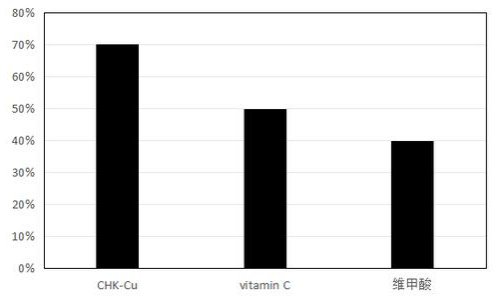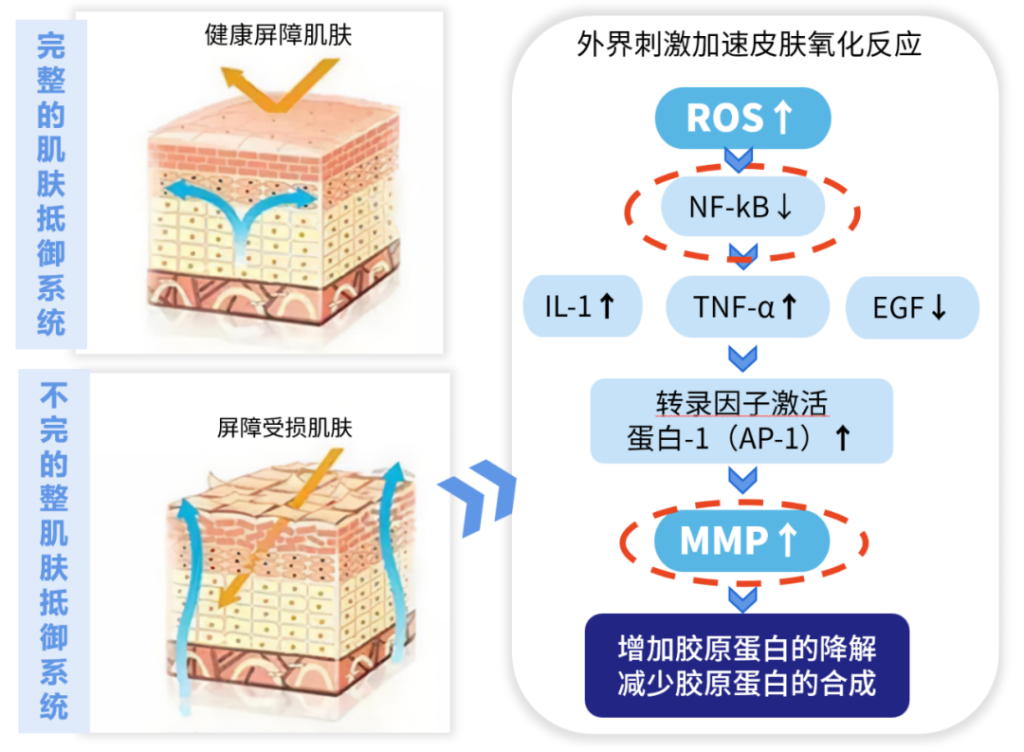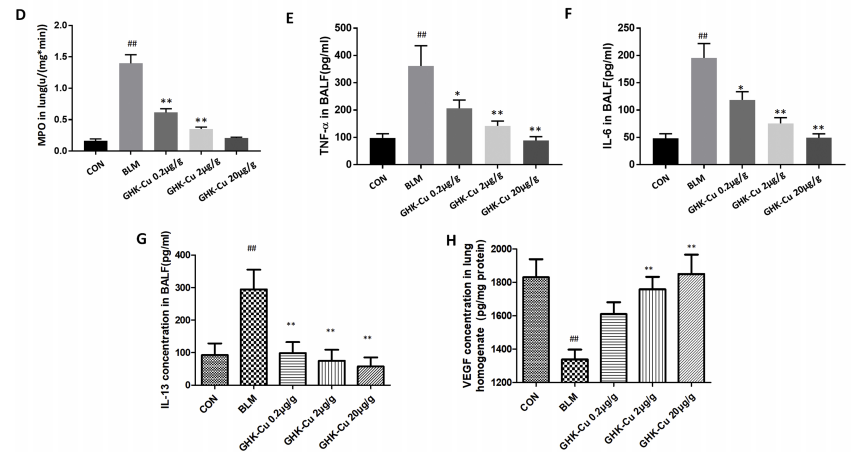In the 1970s, American Dr. Loren Pickart discovered that copper peptide benefits were very effective in treating wounds and skin injuries, not only reducing the production of scar tissue, but also stimulating the skin to heal itself. In terms of wrinkle reduction, copper peptides can minimize daily skin damage and slow down the ageing process.
Copper Peptide is shown as [COPPER TRIPEPTIDE-1] on the ingredient list of skin care products (INCI), and is also known as GHK-Cu. Copper Peptide structural sequence Glycyl-L-Histidyl-L-Lysine-Cu(II). Tripeptide-1 is a small molecule protein composed of three amino acids. Copper is a trace element needed to maintain bodily functions. It is a complex consisting of three amino acids (Glycyl-Histidyl-Lysine) and one copper ion (Copper). Being rich in the non-ferrous metal copper ions, Copper Peptide has a characteristic blue colour.

Currently, the theoretical research on copper peptide benefits mainly focuses on the promotion of wound healing research, the promotion of skin stratum corneum cell growth research and the promotion of collagen synthesis research, etc. Based on these studies, copper peptide has been proved to have the effect of anti-aging, anti-oxygenation and restoration in the direction of skincare. Copper peptide can restore the skin’s repair ability and reduce skin damage, increase the formation of glucosaminoglycan (AGA) and increase the thickness of the skin. Also it can promote the growth of blood vessels and increase the supply of oxygen to the skin; and stimulate the production of collagen to improve the elasticity of the skin and reduce fine lines and deep wrinkles.
More information, please visit Copper Tripeptide-1 Introduction.
- Copper Peptide Benefits for Anti-aging
Blue Copper Peptide can increase cell vitality, stimulate collagen and elastin synthesis, and restore the regenerative capacity of fibroblasts in the dermis without damaging or irritating the skin; it enhances the density and firmness of the skin, slows down skin aging, enhances the elasticity of the skin, and reduces the formation of fine lines and wrinkles.
A clinical study in 1998 comparing the effects on skin collagen production after the use of creams with vitamin C, vitamin A acid and copper peptide applied each of the three creams to the thighs of 20 volunteers. After one month it was found a 50% increase in collagen in the vitamin C treatment, 40% in the vitamin A acid treatment and 70% in the copper peptide treatment.

Figure. Copper Peptide Benefits for Anti-aging
In 2012, Dr. Loren Pickart, the discoverer of copper peptide, published an article showing that copper peptide, as a signaling peptide, is able to release signals to induce fibroblasts and stimulate collagen production after entering the inner skin. In addition, as mentioned earlier, copper ions are important participants in many enzymatic reactions. The divalent copper ions in copper peptide use GHK as a carrier to penetrate deep into the cell and release copper ions after encountering enzymes to stimulate the production of glucosaminoglycans, which are important structures that make up proteoglycans (PG). Proteoglycan supports the extracellular matrix, making the skin plump, moist and elastic. When proteoglycan is insufficient, the skin tends to age and sag.

- Copper Peptide Benefits for Anti-inflammation
Recent studies have found that long-term chronic low-grade inflammation in the skin induces the production of free radicals and increases matrix metalloproteinase (MMP) activity, thereby accelerating collagen degradation and skin ageing. The associated senescent phenotypic factors secreted by senescent cells also reverse the inflammation in the skin, thus further exacerbating skin sensitivity and creating a vicious cycle.
Copper peptide has an inhibitory effect on inflammation, and it can inhibit the synthesis of inflammatory factors, effectively reduce the inflammatory response, calm and soothe the skin, enhance the skin resistance, which is particularly important for the repair of damaged skin and sensitive skin care. It was found that inflammatory factors TNF-α and 1L-6 increased in lung fibrosis stimulated by bleomycin (BLM), and the content of inflammatory factors TNF-α and 1L-6 decreased significantly after treatment with copper peptide, which effectively inhibited inflammatory factors and achieved soothing/anti-inflammatory effects.
 Figure. Copper Peptide Benefits for Anti-inflammation
Figure. Copper Peptide Benefits for Anti-inflammation
- Copper Peptide Safety Using in Cosmetics
GHK itself is a protease hydrolysate and is easily broken down by proteases. When it forms a complex with copper ions, GHK-Cu becomes resistant to aminopeptidase and is not easily broken down. At this point, GHK can carry copper ions to the copper transport site of human albumin. Before reaching the copper transport site, the redox properties of the copper ions bound to GHK are silenced, and they do not participate in enzymatic reactions in the body. Thus the safety of blue copper peptides for cosmetic use is guaranteed.
- Copper Peptide Uses for Skincare Products
When copper peptide is used in cosmetics, it should be avoided compounding with the following ingredients to ensure its efficacy:
- Vitamin C has strong reducing property, when compounding with copper peptide, the copper element will oxidize the vitamin C and change its own structure.
- Niacinamide contains a certain amount of nicotinic acid, and when compounded with copper peptide, it will rob copper ions, and due to its low content of nicotinic acid, the process may be slow.
- Some chelating agents represented by EDTA disodium metal and octanoyl hydroxamic acid can rob copper ions when compounded with copper peptide.
- Copper peptide is prone to release copper ions under pH 3 environment, and the optimal range of pH value is from 5 to 7.
- Strong acids ingredients, such as common fruit acids: lactic acid, lactobionic acid, as well as salicylic acid, AHA, amygdalic acid, azelaic acid, etc., tend to react with copper peptide, making the colour lighter and leading to the loss of action of copper peptide.
Above all, copper peptides benefits for skincare have multiple effects, which are summarized as anti-ageing, promoting wound healing, repairing damaged skin, anti-inflammation and antioxidant.
Related Reading







